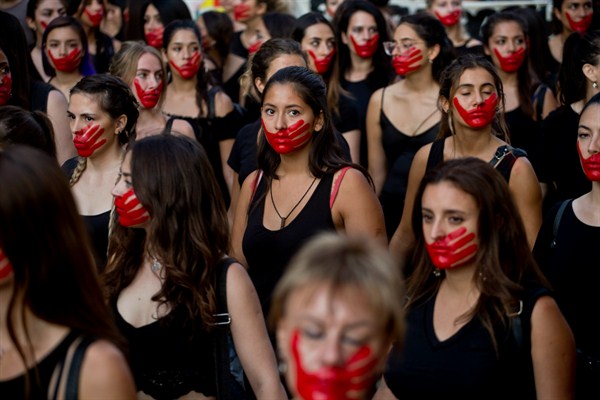The annual session of the United Nations Commission on the Status of Women was held over the course of two weeks last month in New York. Established in 1946, the commission is the largest global forum on gender equality and women’s rights. It provides an opportunity for representatives from U.N. member states, international organizations and civil society groups to take stock of recent progress and assess unfinished business in advancing gender equality around the world.
This year’s commission meeting, which included a record number of attendees, was focused on social protection systems, access to public services and sustainable infrastructure to advance gender equality. But innocuous as that agenda may sound, the forum was marred by contentious negotiations, particularly over the use of words like “gender,” “family” and “reproductive rights” in the commission’s final outcome document, says Rachel Vogelstein, director of the Women and Foreign Policy Program at the Council on Foreign Relations. The facilitator of this year’s session, a Kenyan diplomat named Koki Muli Grignon, reported that she was subjected to a cyberbullying campaign for her work at the commission, receiving nearly 1,000 harassing text messages.
Since the late 1990s, the commission has focused each year on reviewing progress toward the Beijing Declaration and Platform for Action, a comprehensive set of commitments adopted by 189 countries at the 1995 Fourth World Conference on Women in Beijing. The U.N. describes the Beijing Declaration as “the most progressive blueprint ever for advancing women’s rights,” and the document has “reflected international consensus on women’s rights for over two decades,” Vogelstein says. But this year, she notes, “the United States expressed concern about reaffirming the Beijing Declaration.”

